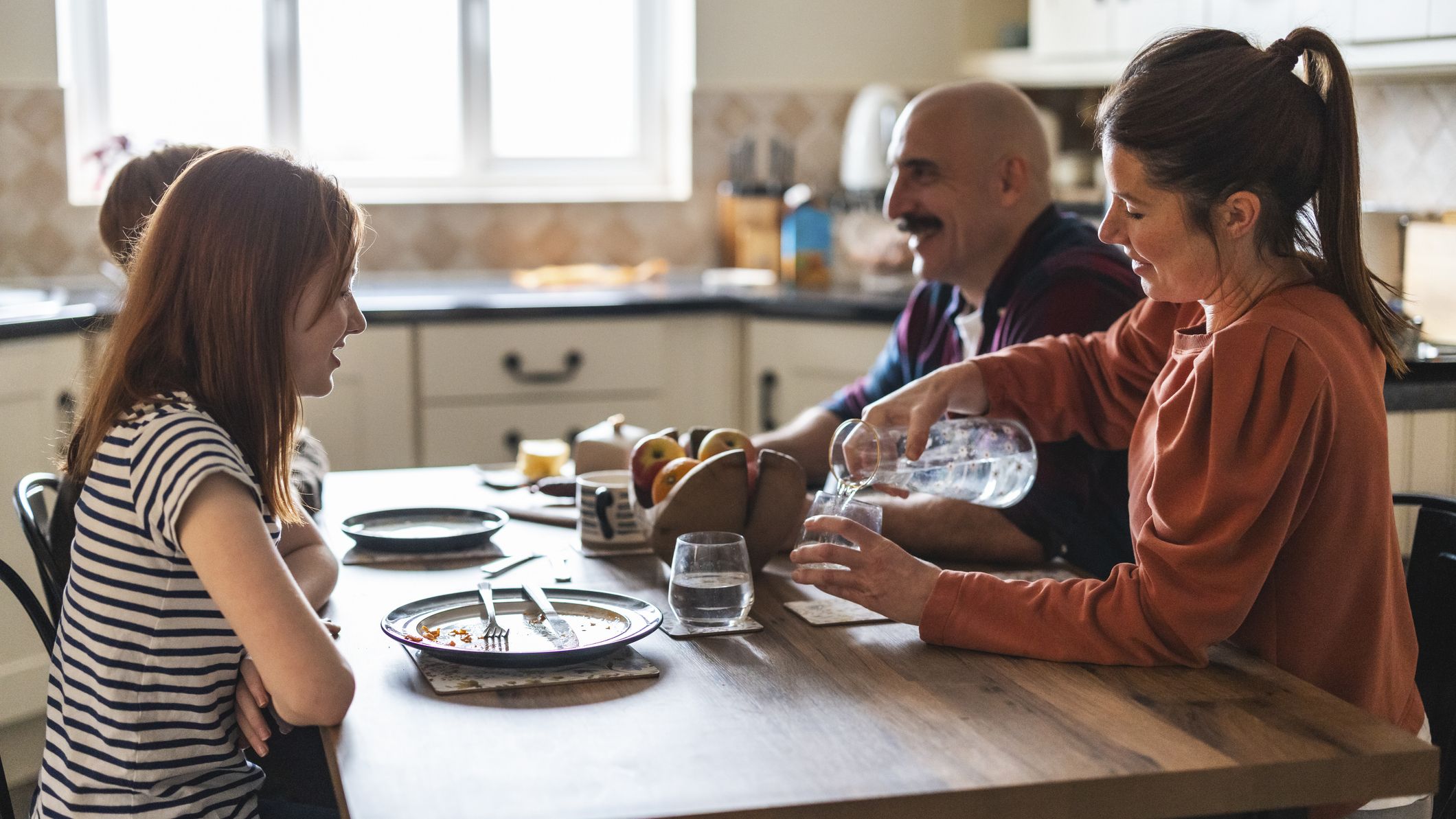
Anyone concerned about living well for longer knows that physical activity and what you eat can make a difference. But I was surprised to learn from a longevity expert that how we eat is important, too.
Dr Mohammed Enayat is a practicing medical doctor and the founder of HUM2N, a pioneering longevity clinic based in London, and he pointed out to me how work has encroached into more and more of our lives—turning breakfast into deskfest, for instance. He says that maintaining a boundary around eating can make a difference to our long-term health and longevity, and impact the quality of our sleep, our ability to exercise and overall wellbeing.
While Enayat’s approach to longevity is more of a philosophy for how to live than separate pieces of advice, his opinions food and eating stood out to me. Here’s what he recommends.
1. Eat at a table with others
Many of us eat on the go, with a takeaway coffee in one hand and a pastry in the other, walking and eating at the same time. Or we often eat quickly, hunched over our desk or the dashboard.
While the pressures of modern life mean that this feels like the default option, Enayat stresses that the environment you eat in should be as nourishing as the food you consume.
“Eat at the table, if you can, with loved ones in conversation,” he says. “Eat with friends or family when you can, as opposed to in isolation on the move in your car.”
One of the practical advantages of eating with other people is that conversation tends to make us slow down, meaning we are less likely to overeat and miss our body’s cues that we are full.
Start your week with achievable workout ideas, health tips and wellbeing advice in your inbox.
Eating seated is also better for the digestive system. If you experience conditions like acid reflux or indigestion, remaining seated after eating, continuing the conversation, will give your body the time it needs to move food through your digestive tract.
2. Chew your food
“Start to break down your food before it enters your stomach,” says Enayat.
The digestive process starts in the mouth and you want your food to be well munched when it hits your stomach to get as much nutrition from it as possible.
“Have it with water as well,” says Enayat. “It’s important that you’re drinking water with your food, especially if you’re worried about overeating.”
Water helps to soften and break down the food, much like chewing, giving your digestive system a helping hand to extract nutrients.
He suggests drinking before you eat, too, so that your stomach isn’t empty, making you less likely to overeat.

3. Don’t eat too close to bedtime
Enayat told me that, much like eating being about nourishment, your sleeping routine should be all about restoration. This means you need to stop eating well before you’re thinking about putting your pajamas on.
“Have your last meal up to three hours before bedtime,” he says. “This gives you time to use your food as fuel, but also prevents you from storing it as unhealthy fats overnight when your body isn’t moving.
“It also enables you to get into your deepest sleep because your body's not keeping you awake because of digestion.”

Lou Mudge is a Health Writer at Future Plc, working across Fit&Well and Coach. She previously worked for Live Science, and regularly writes for Space.com and Pet's Radar. Based in Bath, UK, she has a passion for food, nutrition and health and is eager to demystify diet culture in order to make health and fitness accessible to everybody.
Multiple diagnoses in her early twenties sparked an interest in the gut-brain axis and the impact that diet and exercise can have on both physical and mental health. She was put on the FODMAP elimination diet during this time and learned to adapt recipes to fit these parameters, while retaining core flavors and textures, and now enjoys cooking for gut health.
You must confirm your public display name before commenting
Please logout and then login again, you will then be prompted to enter your display name.
